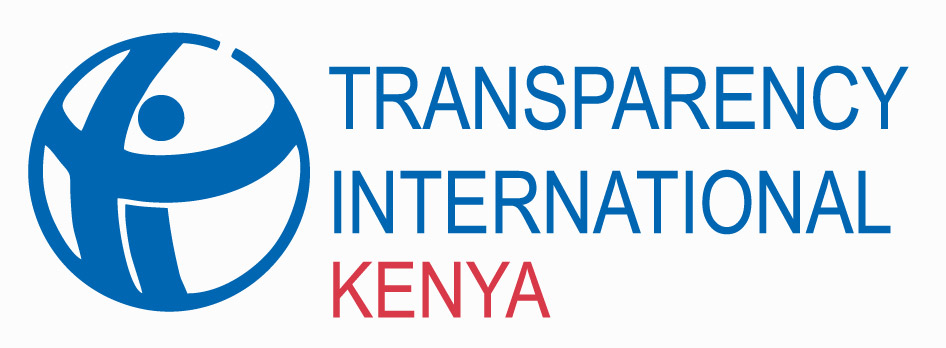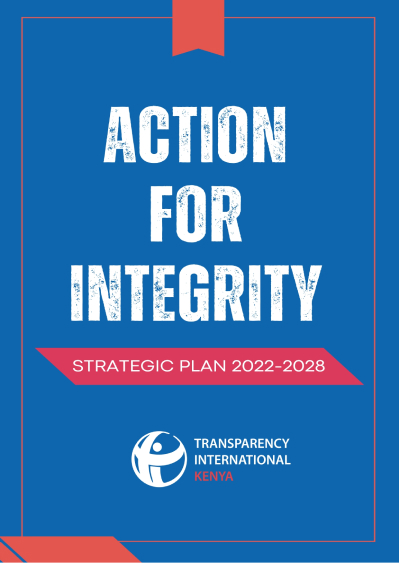
Nairobi – Kenya, 11th February 2025: The 2024 Corruption Perceptions Index (CPI) released today by Transparency International (TI), the global civil society organisation leading the fight against corruption, reveals that global corruption levels remain alarmingly high, with efforts to combat it faltering, amidst declining democracy, rampant human rights violations, and adverse climate crisis across the globe.
2024 CPI indicates that corruption continues to grow in scale and complexity; the ripple effect is huge – causing devastating consequences for global climate action, as corruption diverts critical resources, weakens environmental governance, and hinders urgent efforts to combat climate change.
“Corruption is an evolving global threat that does far more than undermine development – it is a key cause of declining democracy, instability and human rights violations.” François Valérian, Chair of the Transparency International Board, said. “The international community and every nation must make tackling corruption a top and long-term priority. This is crucial to pushing back against authoritarianism and securing a peaceful, free and sustainable world. The dangerous trends revealed in this year’s Corruption Perception Index highlight the need to follow through with concrete action now to address global corruption.”
Global Highlights
The CPI uses a scale of 0-100 (where 100 is the cleanest and 0 is the most corrupt). Countries and territories are ranked based on their perceived levels of public sector corruption. The report is a composite index, a combination of surveys and assessments of corruption, which is collected by a variety of reputable institutions. The 2024 edition of the CPI ranked 180 countries and territories by their perceived levels of public sector corruption, drawing on 13 different data sources from 12 different institutions that capture perceptions within the past two years. Denmark, Finland, and Singapore topped the index, with 90, 88, and 84 points, respectively, while South Sudan, Somalia, and Venezuela, fell at the bottom with scores of 8, 9 and 10, respectively. More than two-thirds of countries scored below 50 out of 100.
Regional Outlook
Kenya obtained a score of 32 out of 100, from a score of 31 points in 2023, and is ranked position 121 out of the 180 countries and territories assessed. Kenya’s score (32 points) fell below the Sub- Saharan average score of 33 and the global average score of 43 (a score below 50 indicates serious levels of public sector corruption). Rwanda tops the East African region with 57 points compared to 53 points in 2023, Tanzania scores 41 from 40 in 2023, Uganda maintained a score of 26, and Burundi has 17 from 20 points in 2023. Countries that scored above the global average from Sub- Sahara African region included Seychelles (72 points), Cabo Verde (62 points), Botswana (57 points), Rwanda (57 points), Mauritius (51 points), Namibia (49 points), and São Tomé and Príncipe ( 45 points).
Kenya’s Performance Across the Years.
Kenya’s score in the Corruption Perception Index remains largely stagnant, reflecting the persistent challenge of corruption in the country. While Kenya scored 32 points in CPI 2024, this represents no significant shift from previous years—only a marginal change from 31 points in 2023. The 5-year trend analysis shows that Kenya had a change of only one score between 2020 (31 points) and 2024 (32 points).
Despite growing public awareness and civic engagement on corruption-related issues—evident in widespread protests against financial mismanagement as experienced during the reject Finance Bill 2024 nationwide protests, sustained public outcry to attempts to weaken anti-corruption laws such as the Conflict of Interest Bill in 2024, and scrutiny of controversial deals including the Adani deal, the reality remains that Kenya continues to grapple with both petty and grand corruption. Bribery, embezzlement of public funds, and misuse of public resources remain entrenched, with reports from the Ethics and Anti-Corruption Commission (EACC) showing widespread dissatisfaction with integrity, transparency, and accountability in public service.
The fight against corruption requires more than just rhetoric or isolated actions. A sustained commitment to strengthening anti-corruption institutions, enforcing laws without political interference, and ensuring accountability at all levels of government is critical. “Kenyans must remain relentless in demanding accountability because corruption thrives where scrutiny is weak. By consistently questioning those in power, exposing wrongdoing, and refusing to stay silent, we can push back against impunity, protect human rights, and build a transparent, just society.’’ Said Sheila Masinde, Executive Director, Transparency International Kenya.

Corruption and the climate crisis
The CPI 2024 shows that corruption is a global problem, affecting every country and obstructing efforts to properly confront climate change. Countries with lower corruption levels generally show better readiness to face the challenges posed by climate change. However, most of these countries are still not adopting the ambitious measures necessary to tackle the climate crisis, due in part to undue influence by businesses. The CPI 2024 also reveals that environmental defenders are at far higher risk of violence, intimidation and murder in countries with high corruption levels. Almost all of the 1,013 murders of environmental defenders reported globally since 2019 took place in countries with CPI scores below 50.
In Kenya, the lack of transparency and accountability in climate financing continues to slow down climate action work. Climate funds and grants, including those from international donors, often lack clear accountability frameworks, making it difficult to track their effectiveness and impact. For instance, the Financing Locally-Led Climate Action (FLLoCA) program, meant to support county- level climate action, faces concerns over transparency in fund allocation and expenditure. Besides, there are also concerns about transparency in Kenya’s carbon credit market, especially on inadequate public disclosures on how carbon credits are generated, traded, and utilised, raising concerns about potential mismanagement.
TI-Kenya proposes the following measures to propel anti-corruption efforts in Kenya:
Put Integrity at the Centre of Climate Initiatives:To strengthen Kenya’s climate resilience, robust anti-corruption measures must be integrated into FLLoCA, carbon credit initiatives, and other climate finance mechanismsto prevent fund misallocation, policy capture, and abuse. The government must also reinforce community engagement, independent oversight, and grievance redress mechanisms to safeguard climate funds. In addition, strengthening collaboration between climate and anti-corruption stakeholders will enhance transparency and accountability. These measures will ensure Kenya’s climate action efforts effectively serve both people and the environment.
Increase Civic Engagements: Kenyans must actively continue to defend their civic rights by upholding the rule of law, rejecting corruption in all forms, and demanding accountability from leaders. Strengthening public vigilance through reporting corruption, advocating for transparent governance, and pushing for strict enforcement of anti-corruption laws is crucial.
Protect Human Rights: The government must immediately ensure an end to the unlawful abductions, release all arbitrarily detained individuals, and uphold the constitutional rights of its citizens. The government must also ensure that security agencies operate strictly within the rule of law by fully investigating and prosecuting those responsible for abductions and extrajudicial killings, while simultaneously establishing a comprehensive missing persons database to improve interagency communication and case resolution.
Safeguard anti-corruption legal framework: To safeguard the integrity of anti-corruption efforts, legislators must refrain from proposing amendments that weaken existing legal frameworks. Recent instances, such as the Anti-Corruption and Economic Crimes (Amendment) Bill, 2023, which sought to delete key sections criminalizing non-compliance with procurement guidelines, and the Conflict of Interest Bill (National Assembly Bill No. 12 of 2023) that proposed removing the sanction that defines conflicts of interest, exemplify attempts to undermine accountability. TI-Kenya urges the National Assembly to uphold its constitutional duty by strengthening, rather than diluting, the legal mechanisms designed to combat corruption, ensuring adherence to principles of good governance, integrity, and accountability.
Media contact: Gerald Omumbo – 0703247825 or 0722296589 or email: gomumbo@tikenya.org www.tikenya.org | www.transparency.org
.

